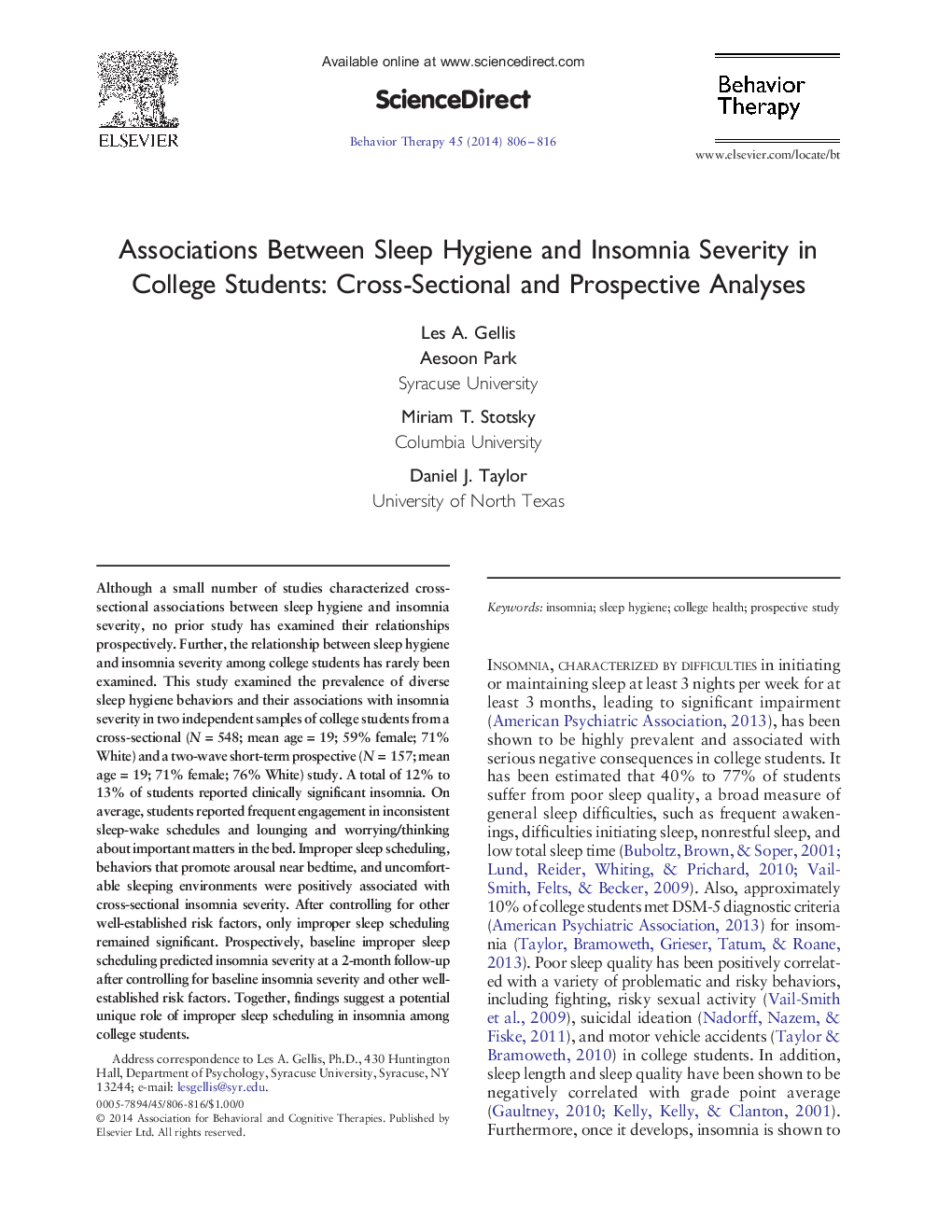| Article ID | Journal | Published Year | Pages | File Type |
|---|---|---|---|---|
| 901398 | Behavior Therapy | 2014 | 11 Pages |
•We examine sleep hygiene and insomnia severity in college students•Students perform poor sleep scheduling and bedroom behaviors about 3 times per week•Poor sleep scheduling is associated with insomnia after controlling for established risk factors•Poor sleep scheduling predicts a change in insomnia at a 2-month follow-up
Although a small number of studies characterized cross-sectional associations between sleep hygiene and insomnia severity, no prior study has examined their relationships prospectively. Further, the relationship between sleep hygiene and insomnia severity among college students has rarely been examined. This study examined the prevalence of diverse sleep hygiene behaviors and their associations with insomnia severity in two independent samples of college students from a cross-sectional (N = 548; mean age = 19; 59% female; 71% White) and a two-wave short-term prospective (N = 157; mean age = 19; 71% female; 76% White) study. A total of 12% to 13% of students reported clinically significant insomnia. On average, students reported frequent engagement in inconsistent sleep-wake schedules and lounging and worrying/thinking about important matters in the bed. Improper sleep scheduling, behaviors that promote arousal near bedtime, and uncomfortable sleeping environments were positively associated with cross-sectional insomnia severity. After controlling for other well-established risk factors, only improper sleep scheduling remained significant. Prospectively, baseline improper sleep scheduling predicted insomnia severity at a 2-month follow-up after controlling for baseline insomnia severity and other well-established risk factors. Together, findings suggest a potential unique role of improper sleep scheduling in insomnia among college students.
